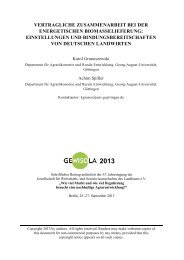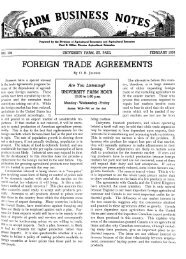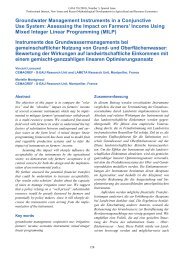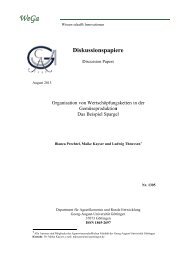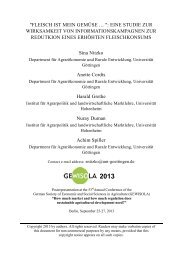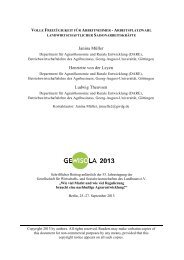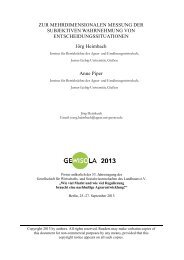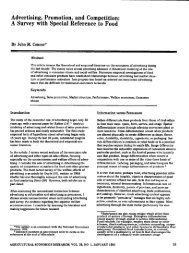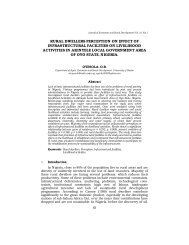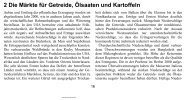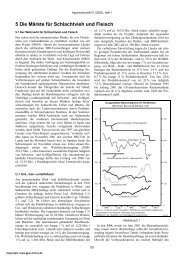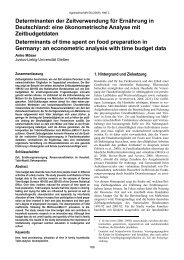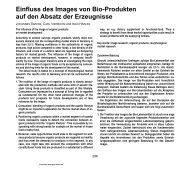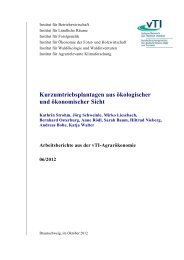District Institutes of Education and Training - Teacher Education
District Institutes of Education and Training - Teacher Education
District Institutes of Education and Training - Teacher Education
You also want an ePaper? Increase the reach of your titles
YUMPU automatically turns print PDFs into web optimized ePapers that Google loves.
<strong>District</strong> <strong>Institutes</strong> <strong>of</strong> <strong>Education</strong> <strong>and</strong> <strong>Training</strong>: A Comparative Study in Three Indian States<br />
management structure. It led to new textbooks for Stds. 1-5 <strong>and</strong> training<br />
programmes for teachers to help them with the package’s underlying principles:<br />
• Children should acquire competencies against MLLs rather than do rote<br />
learning <strong>of</strong> specifics<br />
• The teaching-learning process in elementary schools should be child-centred<br />
<strong>and</strong> activity-based<br />
• All academic inputs at the elementary school level should not be seen in<br />
isolation but as part <strong>of</strong> a larger pedagogic intervention.<br />
This training was delivered at block level by DIET staff, <strong>and</strong> Master Trainers <strong>and</strong><br />
Resource Persons who had had cascade training from the DIET. The classes were<br />
mostly lecture-based, <strong>and</strong> the focus (contrary to the programme aims) was to<br />
complete the modules. In some cases this was observed to involve transmission <strong>of</strong><br />
incorrect content. When asked about this, DIET staff said they are not allowed to<br />
change the module’s content.<br />
<strong>Teacher</strong>s, interviewed on the sixth day <strong>of</strong> the programme, were dissatisfied with<br />
the competence <strong>of</strong> the trainers. The discussion <strong>of</strong> Master Trainer competence<br />
reflects tensions at preceding level <strong>of</strong> the cascade – the DIET’s training <strong>of</strong> those<br />
Master Trainers:<br />
T51 MTs are not very efficient, I am not enjoying it. Actually these MTs have<br />
been given a 5 day training. Whatever they got in those 5 day, they have<br />
to present before teachers in 12 days so they are not able to do it.<br />
T52 Here not all MTs are efficient enough to teach the class V syllabus<br />
(MP/DHA/10.7.99).<br />
Of all the teachers in the sample <strong>District</strong>s, those in Dhar <strong>District</strong> seemed to have<br />
the least faith in the training’s relevance. State-designed packages needed<br />
considerable adaptation to fit local situations. In this largely tribal <strong>District</strong> many<br />
children are first generation learners, <strong>and</strong> did not speak Hindi, which is the <strong>of</strong>ficial<br />
language <strong>of</strong> instruction. Reluctant even to make corrections to wrong subject<br />
content, DIET staff did not engage with this requirement. The fit between<br />
package contents <strong>and</strong> prevailing circumstances also emerged as a prominent<br />
concern in the responses teachers gave to the DIET’s action research project (see<br />
chapter 7); even so, this was felt by the DIET to be a problem <strong>of</strong> the State level.<br />
The training episodes described here reflect the dominance <strong>of</strong> the transmission<br />
model <strong>of</strong> teaching within in-service training approaches, as well as in pre-service<br />
training <strong>and</strong> school teaching. <strong>Teacher</strong>s were making it clear, either by articulation<br />
or through body language, that this training was not engaging them, yet in each<br />
case, the trainer pressed on without regard to their learning. Such examples reflect<br />
DFID 105



